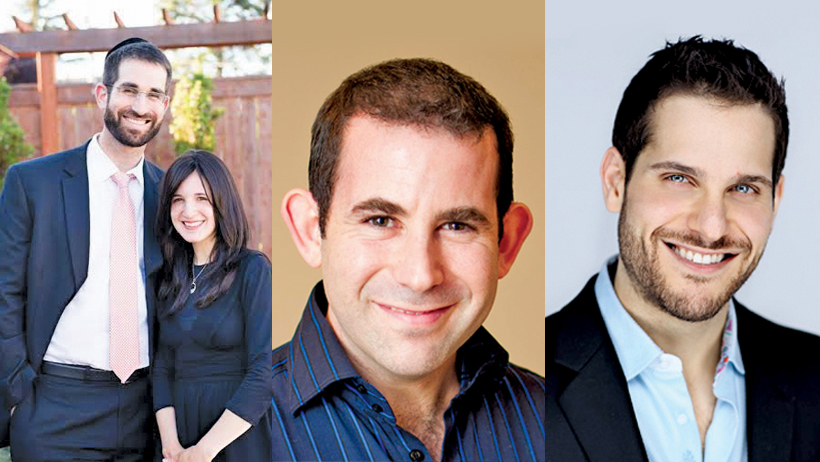He loves me … he loves me not. She loves me … she loves me not. Ever feel as if relationship stability is actually dependent on the number of leaves picked off a random flower? What does the Torah and modern psychology have to say on the subject?
We all know the great Biblical verse "Love thy neighbor as thyself." (Lev. 19:18). Who is this "neighbor" the Bible is talking about? According to the Talmud (Gittin 90a), it's referring to your spouse. It's a beautiful thought. Love your spouse like you love yourself. But why does it say "neighbor" if it means "spouse?" Here comes a shocker. Are you sitting down?
It actually doesn't say "neighbor." It says in Hebrew, רע, which means "companion." Now, are you still sitting? Because this same word, רע, also means evil and unstable!
The Hebrew language is referred to as, "The Holy Language." Every word has depth and meaning. There is no coincidence in word meanings. So what does a "companion", especially if referring to one's spouse, have to do with evil and instability?
Dr. Sue Johnson, primary developer of Emotionally Focused Therapy and winner of the 2016 American Psychological Association's Family Psychologist of the Year, says, "A long-term relationship is about missing each other's steps, stepping on each other's toes and hurting each other, and then turning back towards each other and falling back in love again and again for a lifetime."
Our closest companion will end up stepping on our toes and us to them. Inevitably, we'll end up hurting each other. This pain is at first perceived as "evil." Why did you do that? Don't you know it hurts me? It can get confusing and hurtful at times. And relationships -- as they go through these ups and downs -- often feel unstable. But the Torah is teaching us that this is all an integral part of the process of companionship, and this is the true commandment of "loving thy neighbor."
Love is the roller coaster of companionship. "Love thy neighbor" means love thy companion, knowing that at times it may be a source of pain and may feel shaky. Recognize it and build love through it.
So today, fight your Valentine's Day hangover and go love thy companionship. Embrace the challenges. Bandage the toes that got stepped on, and get back on the dance floor together. Enjoy the dance. As we get more acquainted with the rocky ride, it becomes a little smoother too.
If yesterday was Cupid's Day where the arrow pokes and eyes glaze over, let today be Companionship Day, where the eyes open up and true love is cherished, nurtured, accepted with all its speed bumps -- and enjoyed.


.jpg?n=7878)

.jpg)





.jpg)



